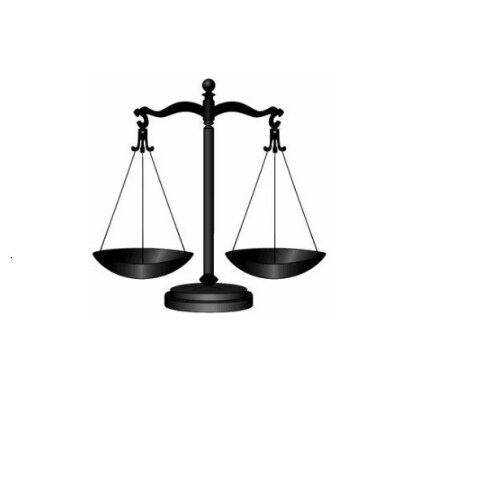Best Discrimination Lawyers in Abuja
Share your needs with us, get contacted by law firms.
Free. Takes 2 min.
List of the best lawyers in Abuja, Nigeria
About Discrimination Law in Abuja, Nigeria
The issue of discrimination, based on various factors such as gender, ethnic background, religious beliefs and sexuality, is a crucial subject within the Nigerian legal framework. Despite being the Federal Capital Territory, Abuja, like other parts of Nigeria, has struggled with discrimination in the past. The Constitution of the Federal Republic of Nigeria, guided by the notion that all citizens should be equal before the law, includes provisions to protect all categories of individuals from discrimination. Unfortunately, the enforcement of these rights often presents significant challenges.
Why You May Need a Lawyer
While constitutional provisions exist to protect against Discrimination, navigating the legal system can be a complex process. If you believe you have been discriminated against due to religon, gender, ethnic background, or any other reason, a lawyer can provide professional advice and guide you through the legal steps to achieve justice. A lawyer will give counsel on filing an appropriate suit, present your case cogently in court and ensure that your rights are upheld throughout the process.
Local Laws Overview
In the Nigerian Constitution (1999), Chapter IV outlines the fundamental human rights of the citizens, of which discrimination is prohibited. Specifically, section 42 prohibits the discrimination of any citizen based on factors such as community, ethnicity, sex, religion, and political opinion. Despite the broad coverage of protections, there are certain areas, such as LGBTQ+ rights, where Nigerian laws do not provide protection. Understanding the specificity of these laws and how they're applied locally in Abuja can greatly aid any discrimination case you might have.
Frequently Asked Questions
What do I do if I experience discrimination at my workplace in Abuja?
Regardless of your type of work, the law prohibits discrimination in the workplace. If you experience discrimination, you should engage a knowledgeable lawyer to guide you through the legal process and ensure that your rights are protected.
Can I file a discrimination claim myself without a lawyer?
While it's technically possible, navigating the intricacies of Nigerian law without expert advice could pose significant challenges. It's important to consult with a lawyer, some of whom offer pro-bono services.
What is the time limit for filing a discrimination case?
There is no specific time limit for filing a discrimination case. However, it's advisable to take action as soon as possible to ensure any physical evidence or testimonies remain credible.
What if I face discrimination from a governmental agency?
Discrimination is unlawful even when it comes from a government agency. If you experience discrimination in this scenario, you can bring the case against the person or agency involved.
Does the law protect against gender discrimination?
The Nigerian Constitution explicitly forbids discrimination based on sex, however enforcement can be a challenge due to societal norms and beliefs.
Are migrants protected under Nigerian anti-discrimination laws?
Yes, foreigners who experience discrimination in Nigeria can rely on the same constitutional rights provided to citizens under Nigerian law. Regardless of their nationality, they can file a discrimination case.
Additional Resources
The Nigerian Human Rights Commission (NHRC) is a governmental body that guides individuals on matters of human rights violations, including discrimination. Other organizations such as Stand to End Rape (STER) and the Women's Rights Advancement and Protection Alternative (WRAPA) also provide assistance, especially in matters of gender-based discrimination.
Next Steps
If you're in need of legal assistance in a discrimination case, your first step should be seeking the advice of a legal professional. Lawyers knowledgeable in discrimination laws can guide you on the next steps, such as filing a formal complaint, gathering evidence and preparing for court proceedings. Consider contacting a human rights legal firm focused on discrimination or consult with the NHRC for assistance.
Lawzana helps you find the best lawyers and law firms in Abuja through a curated and pre-screened list of qualified legal professionals. Our platform offers rankings and detailed profiles of attorneys and law firms, allowing you to compare based on practice areas, including Discrimination, experience, and client feedback.
Each profile includes a description of the firm's areas of practice, client reviews, team members and partners, year of establishment, spoken languages, office locations, contact information, social media presence, and any published articles or resources. Most firms on our platform speak English and are experienced in both local and international legal matters.
Get a quote from top-rated law firms in Abuja, Nigeria — quickly, securely, and without unnecessary hassle.
Disclaimer:
The information provided on this page is for general informational purposes only and does not constitute legal advice. While we strive to ensure the accuracy and relevance of the content, legal information may change over time, and interpretations of the law can vary. You should always consult with a qualified legal professional for advice specific to your situation.
We disclaim all liability for actions taken or not taken based on the content of this page. If you believe any information is incorrect or outdated, please contact us, and we will review and update it where appropriate.












